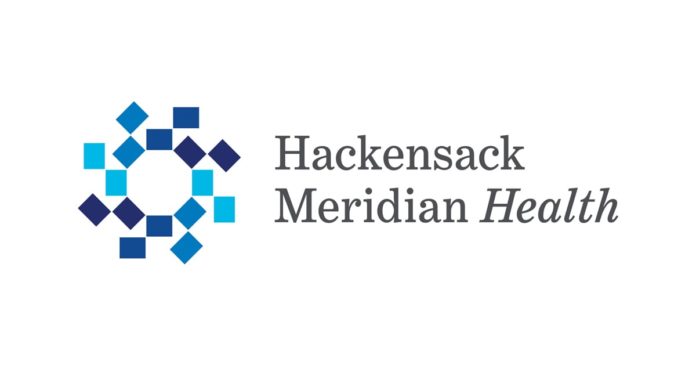
October 5, 2021
Collaborative, interprofessional group of physicians, nurses, psychologists, social workers and rehab therapists provides complete care for LGBTQ+ patients with neurological conditions
Hackensack Meridian Health offers equitable and inclusive care for members of the Lesbian, Gay, Bisexual, and Transgender+ community through a variety of initiatives and services. “The Neuroscience Institute at Hackensack University Medical Center strives to convey to people from the LGBTQ+ community that ours is a safe and welcoming space”, says Florian Thomas, M.D., Ph.D., Professor and Founding Chair, Department of Neurology, Hackensack University Medical Center and Hackensack Meridian School of Medicine; “as symbols of that commitment our bathroom signs are gender neutral, and we display a rainbow flag in the waiting area. Hackensack University Medical Center is also one of nine network hospitals to achieve the Human Rights Campaign Healthcare Equality Index (HEI) “Leader” designation for providing a safe environment, policies and practices dedicated to the equitable treatment and inclusion of their LGBTQ+ patients, visitors and team members.
Stigma, prejudice and mental stress all contribute to higher rates of mental disorders within the LGBTQ+ community. A superimposed neurological condition can add to that stress exacerbating underlying emotions. “Often members of the LGBTQ+ community are under a great deal of stress trying to identify providers who understand their very specific needs,” said Brian Amorello, Ph.D., who is a Health Psychologist in the Neuroscience Institute and an Assistant Professor, Department of Neurology at Hackensack Meridian School of Medicine. “Having spent hours searching for a healthcare provider, they may see somebody who has little idea about their concerns, leaving them vulnerable to increasing anxiety and even depression. Frequently they leave such a visit more confused and with more questions than they had prior. This enhances marginalization for LGBTQ+ people, and is yet another challenge that this community faces. It is critical that their doctor be knowledgeable about their health, emotional and social issues. LGBTQ+ individuals should be aware that the Neuroscience Institute is a place where they will not experience this stress, and feel their medical needs are completely understood.”
As a chronic, unpredictable and disabling disease of patients between the ages of 20-50, the diagnosis of Multiple Sclerosis (MS) can be a difficult one. “MS often leads to cognitive, mood, sexual, bowel, bladder problems, cognitive impairment and mood dysfunction. Treating neurological conditions such as MS requires knowledgeable and empathetic providers who understand the needs of patients who may be coping with a serious diagnosis in the context of their sexual and gender preferences.” said Krupa Pandey, M.D., who directs the Multiple Sclerosis Center at the Neuroscience Institute and is also on the Neurology faculty at the School of Medicine. “We want members of the LGBTQ+ community to feel comfortable receiving care at Hackensack Meridian Health and know that we are equipped to meet their healthcare needs for all neurological conditions.”
“I was diagnosed with MS back in 2013,” said Luz, a patient of Dr. Pandey, who at the time was just beginning to date her now wife, Jess. “I had to be forthcoming with Jess about my diagnosis and Dr. Pandey and her team at Hackensack University Medical Center were fantastic. Dr. Pandey treats me and Jess with such high regard and answers all of OUR questions.” Since being under Dr. Pandey’s care, Luz said her condition has been stable and both she and her wife feel secure and in good hands at the Neuroscience Institute.
Neurological Care for People Who Are Transitioning
When a person embarks on medical gender transition, they may be prescribed hormones and other medications which may increase the risk of developing a neurological disorder and impact an already existing neurological condition, — making it critical that they receive complete neurological care from a welcoming team of experts. “There is a lot of interest and research on the role hormones play in neurological conditions, including MS,” said Dr. Pandey. “Within the Neuroscience Institute, we work together to support a patient who is transitioning. Whether they experience cognitive changes, headaches, are concerned about medication interactions or have an existing neurological disorder, we have subspecialists who can provide the treatment they need.”
Hackensack Meridian School of Medicine efforts on LGBTQ+ health care provider education
The Medical Student Pride alliance (MSPA) at our School of Medicine works to promote LGBTQ+ inclusivity efforts. Dr. Thomas, who also is the interim associate dean of faculty at the School, serves as one of the group’s faculty advisors. “Medical student and resident education on how to care for gender and sexual orientation minorities has in general been insufficient,” says Allison Zuckerberg, a leader of the Pride Alliance and a third-year medical student at the School. “Just providing clinical care for this population is not a substitute for structured, evidence-based education of students, residents and health care providers.” Ms. Zuckerberg helped develop LGBTQ+ components of the School’s curriculum and is currently involved in a quality improvement initiative across HMH’s Children’s Hospitals to improve how gender identity is asked and entered into the electronic medical record.
For more information or to book an interview with one of our physicians, please contact Mary McGeever, manager, PR, mary.mcgeever@hmhn.org or 551-795-1675.








